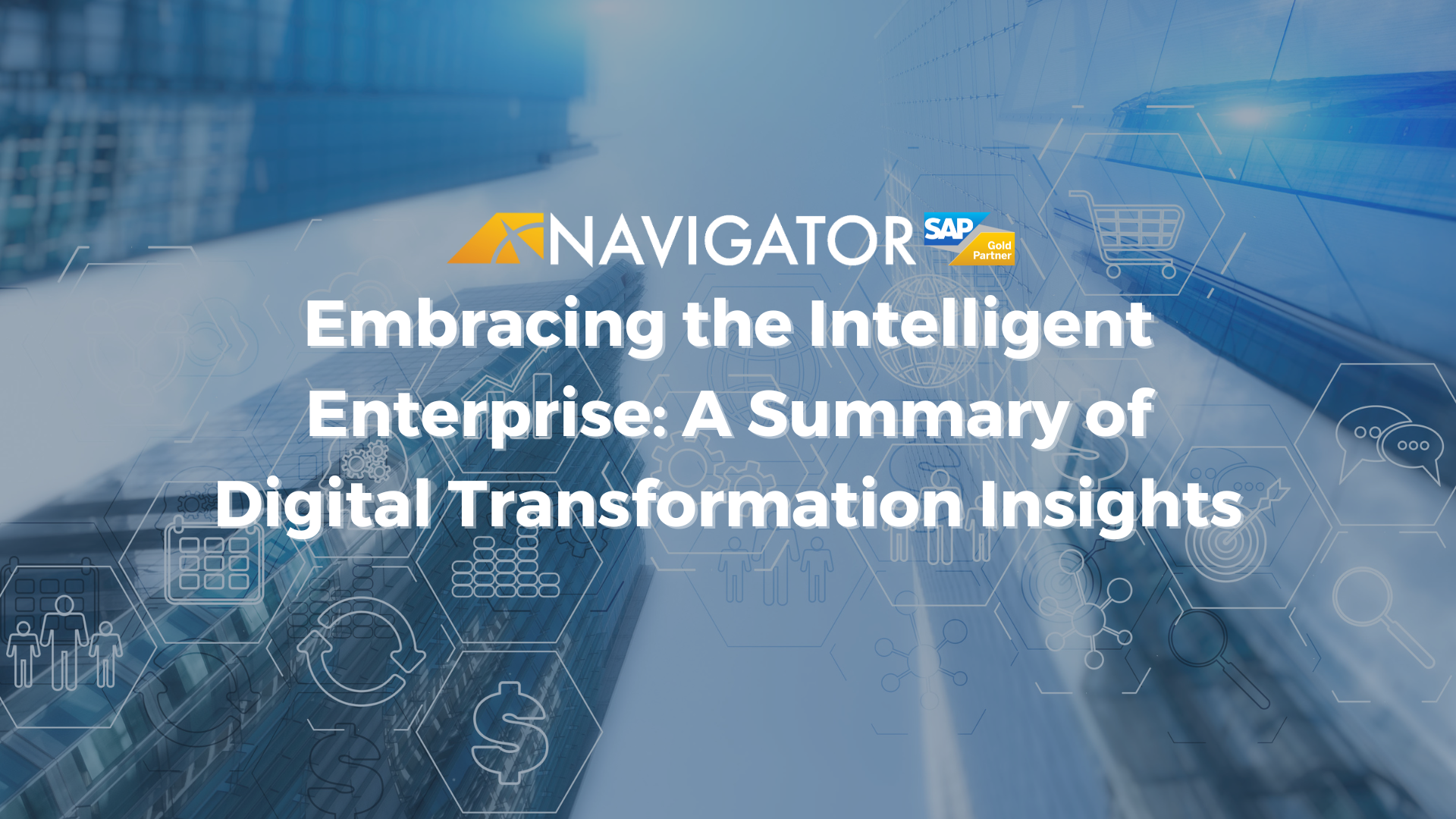
Embracing the Intelligent Enterprise: A Summary of Digital Transformation Insights
In today’s fast-paced, data-driven world, the concept of the Intelligent Enterprise has emerged as a key strategy for organizations aiming to leverage technology and data to achieve business excellence. At its core, the Intelligent Enterprise embodies the principle that the more a system is used, the smarter it becomes. In a recent discussion, experts Russell DeLapp, Ralph Hess, and Peter Kowalke explored this transformative approach, shedding light on the journey from digital transformation to becoming an Intelligent Enterprise.
What is an Intelligent Enterprise?
Russell DeLapp defines the Intelligent Enterprise as a system that evolves and learns through increased data usage, thanks to embedded artificial intelligence (AI) and automation. As businesses grow, so does the complexity of their data. Intelligent systems, such as SAP, process and act on this data, enabling seamless operations. For instance, manual processes like handling paper invoices can be replaced by bots that extract data from emails and PDFs, streamlining accounts payable processes.
The Role of Digital Transformation
Ralph Hess emphasized the integral role of digital transformation in achieving the Intelligent Enterprise. Digital transformation involves a comprehensive shift from manual or outdated systems—such as spreadsheets and small-scale databases—to advanced, integrated platforms. Whether transitioning from basic accounting software like QuickBooks or enhancing enterprise-level systems, digital transformation serves as the foundation for adopting intelligent practices.
For example, Consumer Products companies in the apparel and footwear industries often outgrow their initial systems. To support exponential growth, they transition to more robust platforms, adopting Intelligent Enterprise capabilities such as machine learning and advanced process automation.
The Three Pillars of Transformation
According to DeLapp and Hess, digital transformation comprises three critical components:
- Process Transformation: Transitioning from manual, paper-based operations to automated digital workflows.
- Business Model Transformation: Leveraging data to enable scalability and adopt industry best practices.
- Organizational Transformation: Embracing change management to foster innovation and enhance employee experience.
Benefits of Becoming an Intelligent Enterprise
The Intelligent Enterprise offers several advantages:
-
Enhanced Decision-Making: Real-time data provides actionable insights, enabling quick and informed business decisions.
-
Scalability: Digital transformation ensures businesses can grow efficiently without being constrained by outdated systems.
-
Compliance and Reliability: Advanced systems support regulatory requirements, making businesses more resilient and trustworthy.
-
Employee Empowerment: By automating routine tasks, employees can focus on strategic initiatives and add greater value to the organization.
Overcoming Challenges in Digital Transformation
Change management remains one of the most significant hurdles. As Hess pointed out, effective leadership is essential for fostering a culture that embraces innovation. Providing employees with the freedom to experiment and adapt ensures a smoother transition to new systems. Additionally, maintaining momentum through timely decision-making is critical for successful implementation.
The Path Forward
The journey to becoming an Intelligent Enterprise is accessible to businesses of all sizes. Whether a $10 million startup or a billion-dollar corporation, the key lies in adopting a mindset that views technology as an enabler rather than a cost. Intelligent systems help organizations do more with less, unlocking new opportunities for growth and innovation.
In conclusion, the Intelligent Enterprise represents a shift from focusing on IT infrastructure to prioritizing outcomes. By leveraging AI, automation, and predictive analytics, businesses can enhance their efficiency, competitiveness, and resilience in today’s dynamic economy. As Kowalke aptly summarized, this transformation allows companies to focus on what truly matters: strategic growth and delivering value to customers.
Ready to embrace a digital transformation? Fill out our contact us form, call (801) 642-0123, or email info@nbs-us.com.

